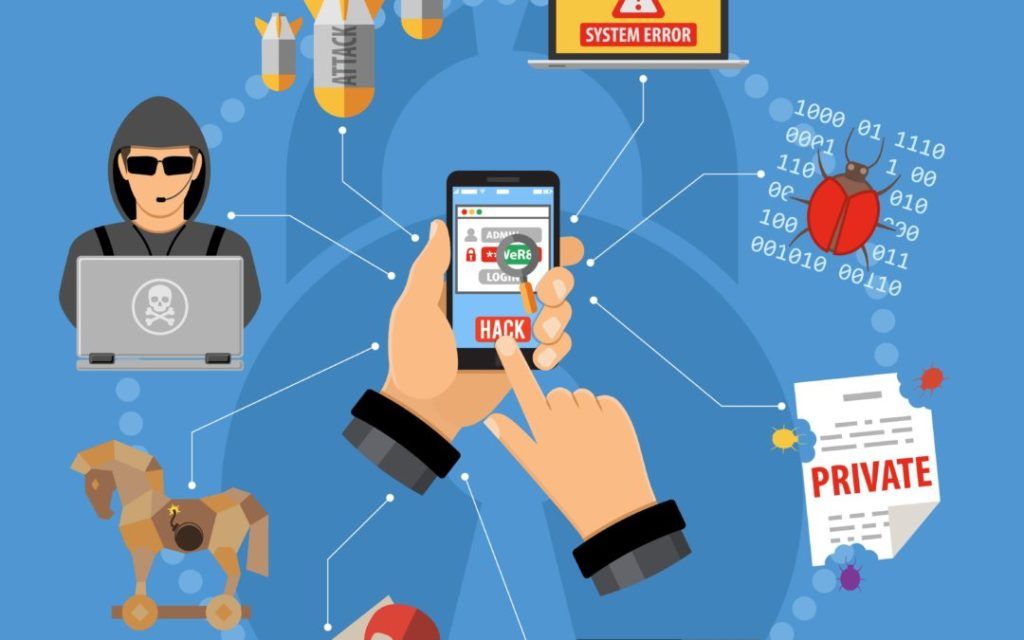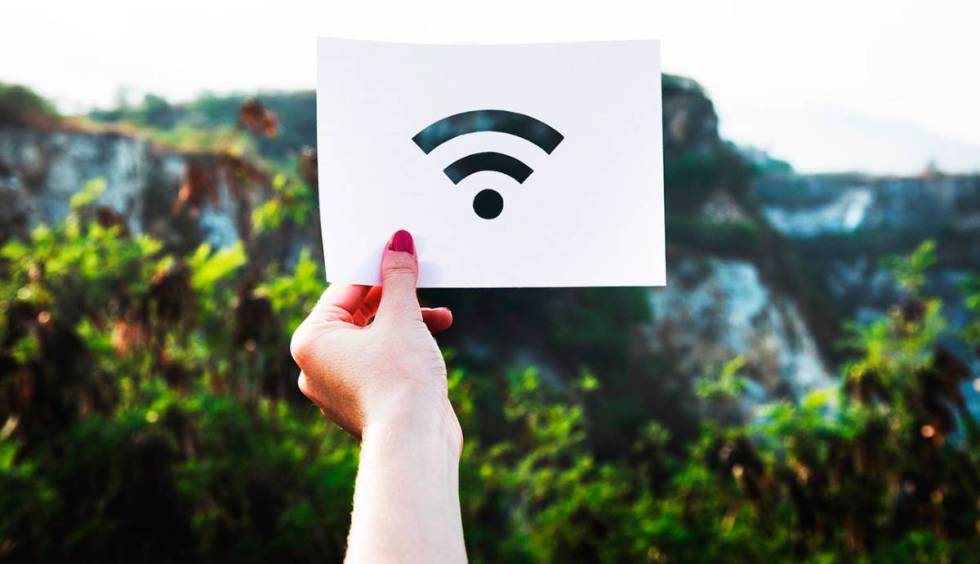Cyber-security threats proliferate our world, and in the coming years, their scale and impact are only going to get bigger. This is especially concerning if you consider that most of today’s corporations have to contend with having their corporate data being accessed on a smartphone. For employees, it is most convenient, but for companies, it is a security nightmare that they would rather not face and they have every reason to be afraid.
Research has shown that mobile phones are increasingly being used to perpetrate cybercrimes that range from corporate espionage, identity fraud, data leakage to crypto-jacking. In 2020, such threats are only going to be magnified as a result of faster networks (5G), more connected devices (IoT) and the widespread adoption of AI.
One way to keep ourselves safe from future mobile-security threats is to stay abreast with their evolving nature. Cybersecurity experts, after all, agree that knowing the kind of cyber risks that you are likely to run into helps in the adoption of effective countermeasures. This piece does just that by considering the top 10 mobile security threats, you should worry about in 2020.
1. #Data leakage

Data leakage is one of the most worrisome and hardest to prevent threats to enterprise security. Most people, for instance, store passwords on their phones and will leave them lying around without sparing second thoughts on what would happen if they were improperly accessed.
Data leakage perpetuated this way is not nefarious, and because corporations have no business telling adults how they are to use their phones, it is a very difficult threat to control.
Corporate data leakage can also happen when apps have too much access to user’s data. One way to stop this from happening is to install an Android cleaner app that will keep your data from being accessed without your consent. The app can also help manage your passwords and accounts.
2. #Cryptojacking Attacks

Did you know that your phone can be used to mine cryptocurrency without your consent? Cyptojacking is not new, but is nonetheless a recent development in mobile security threats and one that is gaining steam. It started with the hijacking of desktops, but it is now a fully-fledged mobile security threat that can target anyone.
With the use of Mac and PC cleaning software, it is relatively easy to get rid of the threat to computers. On mobile phones, however, it is an entirely different matter because the mobile-specific crypto mining software are very stealthy. The only clue they leave behind is a fast-draining battery and excessive data usage.
Google and Apple have so far moved to contain mobile-crypto mining apps by banning them on Play Store and iOS App Store respectively, and while this has somewhat contained the threat of cryptojacking, cyber-security experts warn that apps from unofficial third-parties still pose a great threat.
3. #Out Of-Date Software

One of the reasons that software vendors keep on pushing updates is better security. But not all vendors or device manufacturers can provide updates on time a situation that leaves device users exposed to zero-day attacks.
With the coming of the Internet of Things – a real possibility now that 5G is a proven technology- there is an increased likelihood that sloppy manufacturers will leave mobile phone users exposed to all sorts of attacks.
Think about it, every device manufacturer out there will want to be part of the Internet of Things, and they will have to develop some software to facilitate this. With millions of manufacturers and product vendors involved, the potential weak vulnerabilities will be so many and attacks, commonplace.
4. #Social Engineering Attacks

Social engineering attacks look for weaknesses in human nature. An example of such a weakness is irresistibly attracted to great discounts or clickbait stories. Cybercriminals use this to their advantage by pushing users to click on emails and URLs that are infected with malware.
Given that mobile phones are the primary devices through which people access the Internet, such scams are only going to be more pronounced in 2020 and beyond.
5. #Unsecured Networks

It is not farfetched to think that by 2020 and beyond, almost every city will have public Wi-Fi. While this is a welcome development, public Wi-Fi will nonetheless put millions of people at risk because it is primarily an unsecured network.
Cybercriminals, governments, and intelligence agencies have all mastered the art of eavesdropping on communications over public Wi-Fi.
Most people are, of course, oblivious of this danger and given the amount of personal information that is carried on our smartphones, there is no telling the kind of crimes that are going to be perpetrated on such networks. Perhaps, the only defense we might have is to avoid them entirely.
6.#Jailbreaking/Rooting

Cybercriminals can bypass the security of the App Store and Google Play Store and install third-party apps on your phone. They can do this by compromising Android OS through a procedure called Rooting or Jailbreaking in iOS devices. While research shows that only 0.1% of iOS devices and 0.5% of Android devices are compromised this way, the security threat is massive if you consider the pool of billions of devices.
Jailbreaking and Rooting are going to be persistent threats that we need to be worried about because cybercriminals are always improvising. Not to mention, iOS and Android operating systems are continually having their security flaws exposed and, in the process, leaving their users exposed.
7. #Malware

Malware infection will always constitute a threat to mobile systems. With the increased adoption of AI, it is likely that we will soon be seeing malware threats that are maladaptive. They will be able to respond to anti-malware solutions in ways that our most trusted PC tips and tricks guides are yet to provide answers to.
8. #Privacy Breaches

Tomorrow’s mobile security threats don’t even have to come from you because if the Cambridge Analytica scandal is anything to by, social media giants, such as Facebook and Google, can leak your data to the wrong entities.
But it is not just Facebook or Google as there are many apps installed on your phone, all of which could potentially be breached and in the process expose everyone’s little dirty secrets.
How do you protect yourself in such a scenario? The sad truth is that there is little you can do to prevent a dating site from being hacked, for instance or Google, for that matter. You can, however, limit the quantity of data stored on your phone at any time by using cache cleaners.
9. #Withdrawn Support

There is a lot of bickering going around between the governments of China and the USA. A recent consequence of this was the recent withdrawal of Android support on Huawei smartphones by Google. This left millions of people with Huawei devices vulnerable to security breaches because they could not download the latest apps on Play Store or access some of Google’s services.
There is no telling how the trade war between the two trade giants US and China will go, but if recent indications are anything to go by, 2020 will be the year when support is fully withdrawn.
10. #Third-Party App Stores

Some people rightly feel that Google and Apple have an oversized say when it comes to app development, purchase, and control. And as the recent case involving Huawei showed, there is some truth to this.
Third-party app stores try to limit the dominance of these tech giants, but compared to Google and Apple, they don’t offer the same type of security guarantees. In 2020 and beyond, they will continue to sources of multiple mobile security threats.
Wrap Up

Shall we ever live in a completely safe world? No security expert would answer in the positive, and this is because as our security measures become better, the threats that we face adapt to counter them. The same is true when it comes to mobile phone security threats- we will have to stay vigilant.
Author Bio:
Mathew Ngatia is a computer scientist who currently works as a content specialist at Softwaretested.com. He writes on topics related to tech, VPN, digital marketing, gaming, SEO and more. Outside of work, Mathew is interested in artificial intelligence and programming in general and is an avid book reader.
